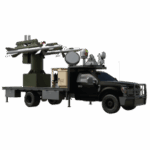
A new report from the National Security Commission on Artificial Intelligence calls on the U.S. to provide greater support during the pandemic to small and medium-sized companies working on critical AI tools, adding the economic downturn places serious risks to long-term technology innovation. The commission’s report includes a recommendation to establish rapid technology procurement funds as start-ups and non-traditional partners weather the impact of delayed programs and acquisition efforts. “Although many of the largest technology companies are thriving, innovative startups…

 By
By 











